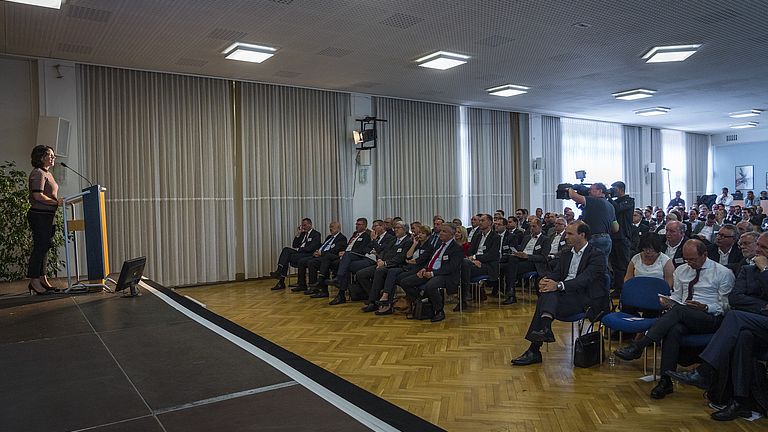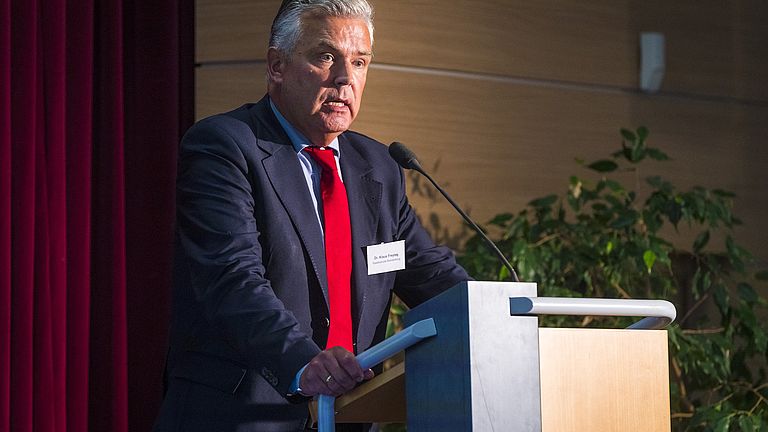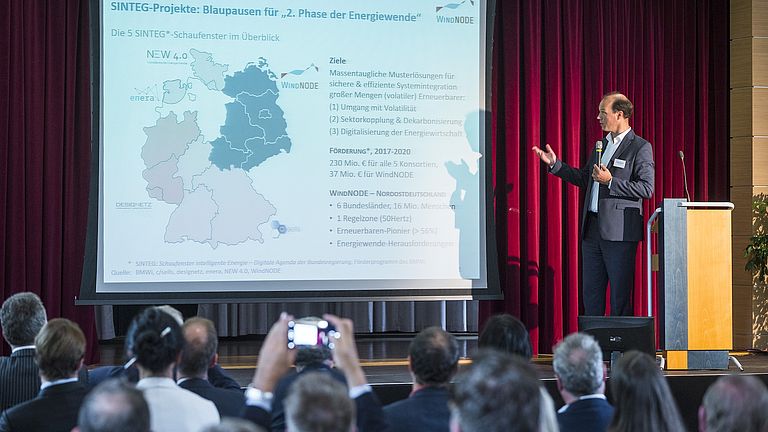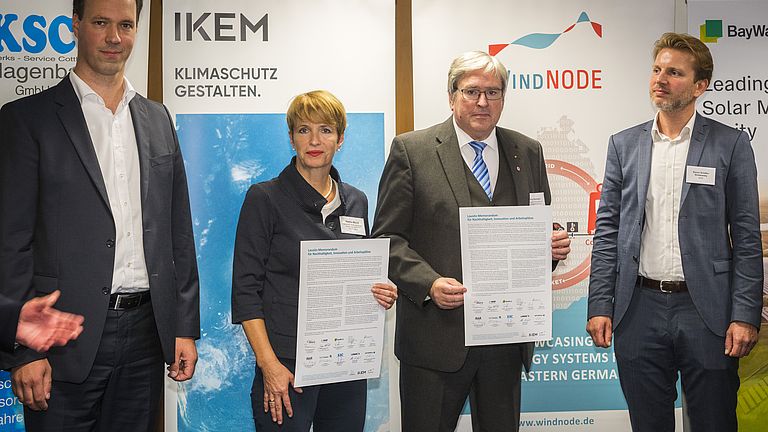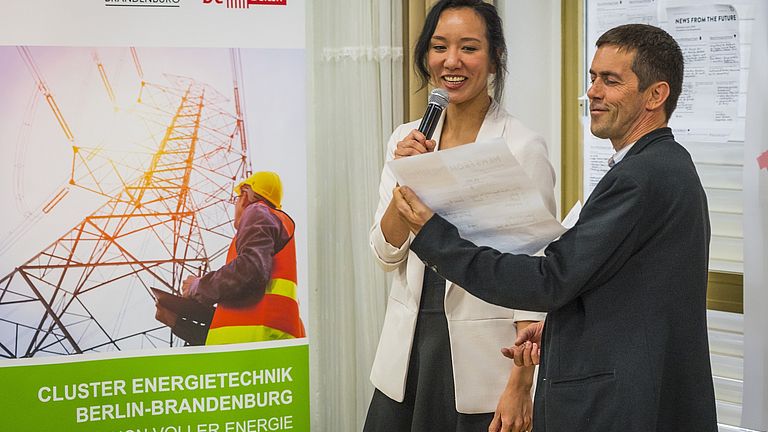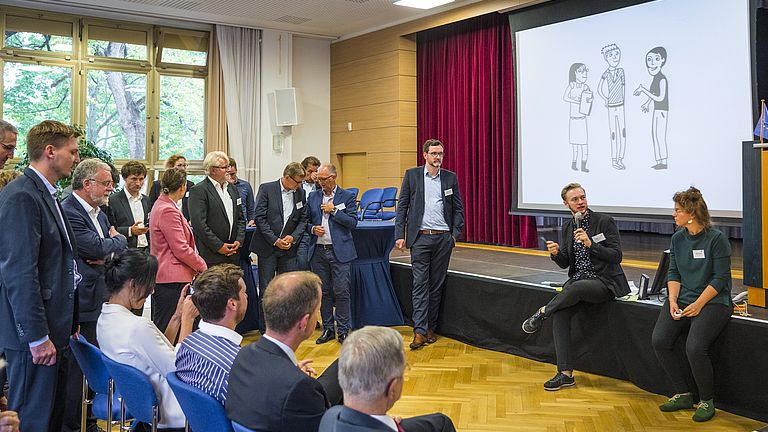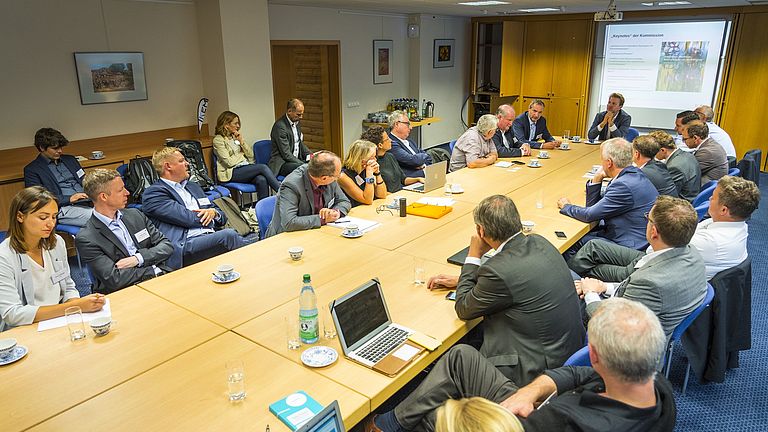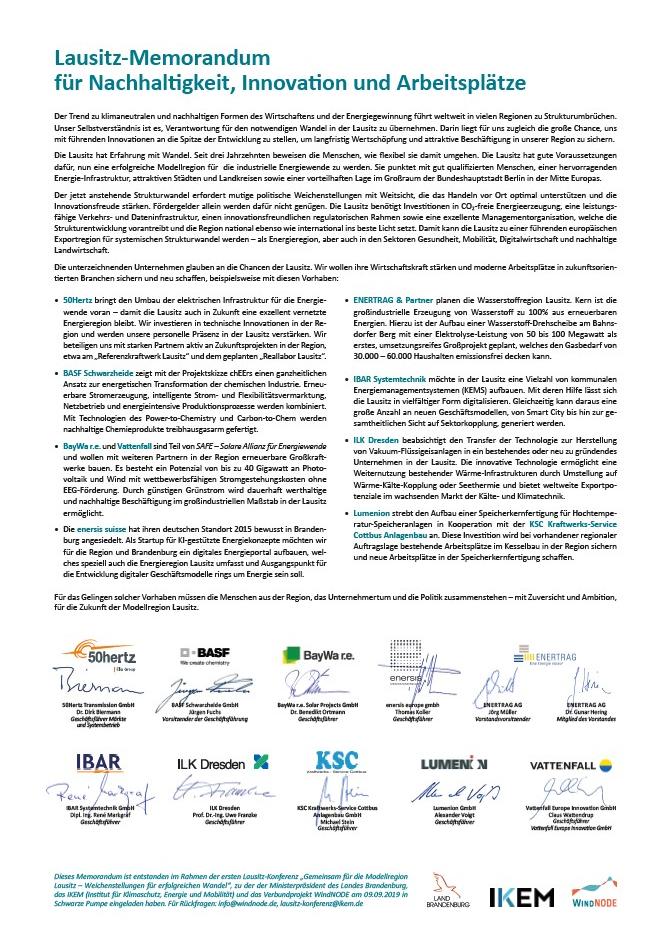Becoming a model region for a successful structural change
On 3 July 2020, the Bundestag and Bundesrat paved the legislative way in preparation for the departure of coal-fired electricity generation by the end of 2038. In order to make this a fair and successful structural transition, the affected regions are backed by 40 billion euros in federal subsidies. Two of the three regions, Lusatia and the Central-German lignite region, are located in the WindNODE area. We pledged our efforts in to seizing each opportunity that comes with such structural change all whilst serving the regions to become model regions for the future of decarbonised energy systems. WindNODE provided blueprints on how to establish lively corporate networks in the energy transition, thus enabling successful innovations and as such highlighting our region’s energy-related competences. Here, we are proud to present just a few of our pursuits for the regions affected by the transformation.
1. Lusatia Conference on Structural Change and Energy Transition, 9 September 2019
“Together for the Lusatian Excellence Region - setting the course for successful transition" this was the motto of the first Lusatia Conference on Structural Change and Energy Transition in Schwarze Pumpe near Spremberg on September 9, 2019. Hosted by the Prime Minister of the State of Brandenburg, the WindNODE consortium and the IKEM (Institute for Climate Protection, Energy and Mobility) the conference aimed to initiate a dialogue on successful structural change. Proven ideas from successful transformation processes were presented and concrete approaches for Lusatia were developed. In addition, the conference served as a networking platform for stakeholders, which is to be continued annually in the future.
The around 100 participants from business, science, politics and society enabeld a multifacedet exchange on Lusatia's path to becoming a European model region for successful structural change. Ten companies, including the WindNODE partners 50Hertz, enersis, ENERTRAG, IBAR Systemtechnik, ILK Dresden, Vattenfall and Lumenion immediately followed the words with action and presented a "Lusatian memorandum for sustainability, innovation and employment" to the state government of Brandenburg. It states:
“The endorsing companies believe in the opportunities of Lusatia. We want to strengthen its economic power as well as secure modern employment and create new jobs in future-oriented sectors.”
The memorandum lists numerous concrete projects that the signatory companies are aiming to implement in Lusatia, ranging from a hydrogen hub, a municipal energy management system (KEMS) to the manufacturing of heavy steel cores for high-temperature storage units.
Nevertheless, the companies stress that structural change cannot be taken for granted and requires people from the region, business and politics to stand together:
„Lusatia needs investments in CO2-free energy generation, high-performance traffic and communication infrastructure, an innovation-friendly regulatory framework as well as an excellent management organisation that drives the structural development forward and puts the region in the national and international limelight.“
Many coal regions around the world face similar challenges. This means that, despite regional differences, communities in transition can benefit from sharing the successes and challenges that they have encountered in their journey toward a low-carbon future. The concept of a "just transition" plays a crucial role in this transformation: The concept assumes that the transformation of the energy system and regional economy needs the broad support, active commitment, and participation of citizens. A future-proof economy must ensure broad social inclusion and benefit everyone, especially those who are most vulnerable. A just transition can help coal regions reduce the impact of the phaseout on livelihoods and communities and create new green sectors, high-quality, decent & meaningful jobs, and resilient, liveable neighbourhoods. Such a just transition has at its heart a well-managed, inclusive, and fair transition process that is accompanied by a respectful and meaningful social dialogue on all levels.
To this end, in the scope of WindNODE the Institute for Climate Protection, Energy and Mobility (IKEM) is currently researching transition processes in a variety of current and former coal regions worldwide, starting from the German lignite region Lusatia, to develop a handbook that can be used as a guide for energy transitions in Lusatia and other coal regions.
At the heart of the ‘Just Transition Study’ are regional case studies, which investigate drivers of the energy transition, tools that facilitate transition processes, and experiences with practical implementation. The study examines a broad range oftools. These can be used by the affected communities to promote sustainable economic development and employment, address acceptance and identity issues, and ensure broad participation in the transition to a sustainable energy system. These tools range from financial tools, regulatory instruments, technical innovations and business models to participatory formats, social innovations, and governance models. Insight from a broad range of stakeholders – including policy makers, business leaders, civil society organisations, researchers, and educators – is therefore a crucial component of the case studies.
The case study findings will be linked to successful approaches from WindNODE and compiled into a handbook of best practices that can be used by regional policy makers and stakeholders to implement successful transitions in coal regions. The handbook will feature:
1. a Just Transition Toolbox for coal regions with best practices, lessons learned and inspiring stories,
2. a roadmap for the energy transition in Lusatia with practice-oriented recommendations that are tailored to specific regional strengths and challenges, and
3. recommendations to facilitate a just transition through changes in the regulatory and policy framework across different level.
As part of the ‘Just Transition Study’ IKEM has developed regional profiles that capture the opportunities and challenges for the energy transition in selected case study regions. The regional profiles highlight the variety of transition pathways and indicate possible best practices, which will be analysed in greater depth in the ‘Just Transition Study’ and compiled into a handbook. The profiles reflect our preliminary research results and serve as a basis for the exchange with regional stakeholders.
